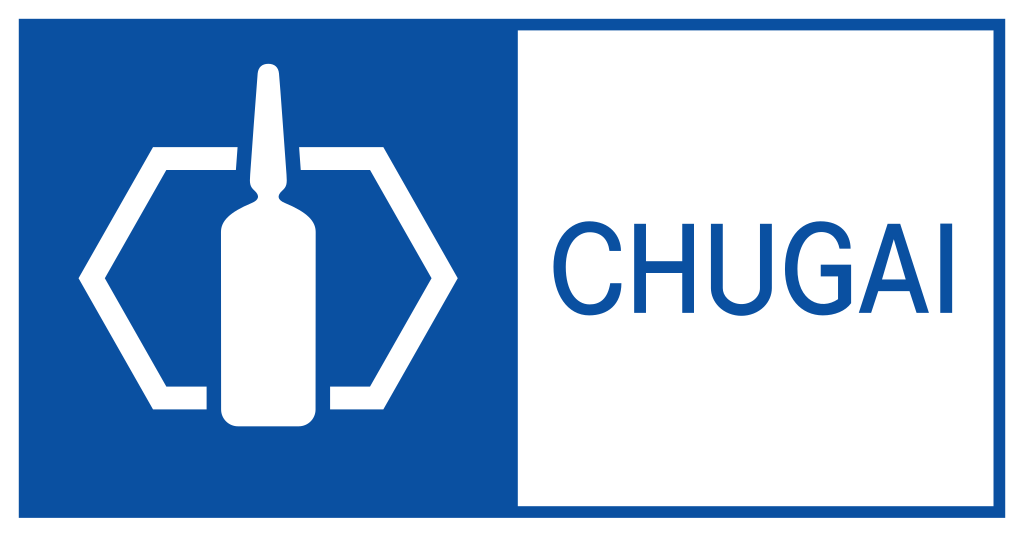CHUGAI PHARMACEUTICAL CO., LTD.

- Country
- 🇯🇵Japan
- Ownership
- Public, Subsidiary
- Established
- 1925-03-10
- Employees
- 7.6K
- Market Cap
- $83.6B
Roche Announces Leadership Changes as Head of Pharma R&D Hans Clevers Retires
Johannes (Hans) Clevers, Head of Roche Pharma Research and Early Development (pRED), will retire at the end of August 2025 after accelerating several potentially transformational medicines into final development phases.
NEC and Chugai Pharmaceutical Develop AI System to Accelerate Cancer Drug Combination Discovery
NEC Corporation and Chugai Pharmaceutical have successfully tested an AI system that can predict effective cancer drug combinations, potentially reducing prediction time by approximately 50% compared to conventional methods.
Chugai Pharmaceutical Eyes Combination Therapy to Set New Standard for Obesity Treatment
Chugai Pharmaceutical, the Japanese biotech behind Eli Lilly's oral obesity drug orforglipron, plans to combine it with its anti-muscle wasting drug GYM329 to create a new standard of care for weight loss patients.
Nemluvio Shows Sustained Long-Term Efficacy in Atopic Dermatitis with Two-Year Extension Data
New two-year data from the ARCADIA long-term extension study demonstrate that Nemluvio (nemolizumab) maintains sustained and increased improvements in itch, skin lesions, sleep, and quality of life in patients with moderate-to-severe atopic dermatitis.
Tecentriq and Avastin Combined with TACE Shows Significant Benefit in Unresectable Liver Cancer Trial
The Phase III TALENTACE study demonstrated statistically significant improvement in TACE-progression-free survival for patients with unresectable hepatocellular carcinoma treated with Tecentriq, Avastin, and on-demand TACE.
Rani Therapeutics and Chugai Pharmaceutical Partner to Advance Oral Antibody Delivery Technology
• Rani Therapeutics has entered a research agreement with Chugai Pharmaceutical to evaluate the application of its RaniPill® oral delivery technology for Chugai's antibodies against undisclosed targets. • Initial analysis confirms RaniPill® delivery demonstrated comparable bioavailability to subcutaneous injection for both molecules studied, potentially transforming how biologics are administered. • The collaboration leverages Rani's expertise in oral biologics delivery with Chugai's antibody engineering capabilities, aiming to address the challenge of oral administration for complex biological drugs.
Taiwan Approves Chugai's PiaSky as First Subcutaneous Treatment for Paroxysmal Nocturnal Hemoglobinuria
Taiwan FDA has granted orphan drug approval for PiaSky, making it the first subcutaneous treatment for paroxysmal nocturnal hemoglobinuria (PNH) available in Taiwan for patients 13 years and older.
Chugai Seeks Approval for Tecentriq to Treat Rare Thymic Carcinoma in Japan
Chugai Pharmaceutical has filed for regulatory approval to use Tecentriq (atezolizumab) in combination with carboplatin and paclitaxel for treating thymic carcinoma in Japan, with the application granted priority review status.
Chugai's Vabysmo Becomes First Approved Treatment for Angioid Streaks in Japan
Chugai Pharmaceutical has received Japanese regulatory approval for Vabysmo as the first-ever treatment for choroidal neovascularization associated with angioid streaks, a rare eye disease that can lead to vision loss.
Japan Approves Lunsumio (mosunetuzumab) for Relapsed/Refractory Follicular Lymphoma
Chugai Pharmaceutical's Lunsumio (mosunetuzumab) has received approval in Japan for treating relapsed or refractory follicular lymphoma (R/R FL).
